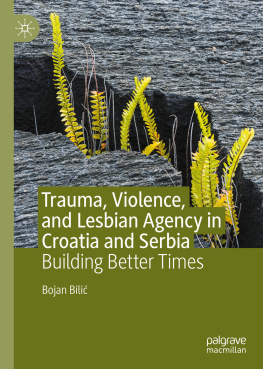First published October 2003 by Oxford University Press for
The International Institute for Strategic Studies
Arundel House, 1315 Arundel Street, Temple Place, London WC2R 3DX
This reprint published by Routledge
2 Park Square, Milton Park, Abingdon, Oxon, OX14 4RN
For the International Institute for Strategic Studies
Arundel House, 1315 Arundel Street, Temple Place, London WC2R 3DX
www.iiss.org
Simultaneously published in the USA and Canada
By Routledge
711 Third Avenue, New York, NY 10017
Routledge is an imprint of the Taylor & Francis Group, an informa business
The International Institute for Strategic Studies 2003
Director John Chipman
Editor Tim Huxley
Copy Editor Matthew Foley
All rights reserved. No part of this publication may be reproduced, stored in a retrieval system or transmitted in any form or by any means, electronic, mechanical or photo-copying, recording or otherwise, without the prior permission of The International Institute for Strategic Studies. Within the UK, exceptions are allowed in respect of any fair dealing for the purpose of research or private study, or criticism or review, as permitted under the Copyright, Designs and Patents Act, 1988, or in the case of reprographic reproduction in accordance with the terms of the licences issued by the Copyright Licensing Agency. Enquiries concerning reproduction outside these terms and in other countries should be sent to the publisher.
This book is sold subject to the condition that it shall not, by way of trade or otherwise, be lent, re-sold, hired out or otherwise circulated without the publisher's prior consent in any form of binding or cover other than that in which it is published and without a similar condition including this condition being imposed on the subsequent purchaser.
British Library Cataloguing in Publication Data
Data available
Library of Congress Cataloguing in Publication Data
ISBN 0-19-853039-0
ISSN 0567-932X
On 12 March 2003, Zoran Djindjic, Serbia's reformist prime minister, was murdered by assassins from the Special Operations Unit (JSO), a semi-autonomous element of the Serbian security services closely connected to organised crime. Djindjic's assassination has illustrated the continuing legacy of the Milosevic period in Serbia-Montenegro, in particular the damage that might be caused by armed organisations able and willing to intervene in domestic political change.
At the time of the fall of Slobodan Milosevic in 2000, the most significant of these groups in Serbia-Montenegro was the Army of Yugoslavia (VJ). Its leadership was packed with Milosevic cronies, its institutional interests appeared to be directly threatened by post-authoritarian change, and it had a history of playing an autonomous political role within the state. Many of these features were mirrored in Croatia. Here, the armed forces (OSRH) had also been politicised, with the leadership closely tied to the authoritarian regime of President Franjo Tudjman and his nationalist Croatian Democratic Union (HDZ) party. As in Serbia-Montenegro, the OSRH's own institutional interests appeared to be deeply threatened by political change. Between 2000 and 2003, questions relating to the transformation of the VJ and OSRH have been central to wider processes of post-authoritarian and post-conflict transition in both these countries. Moreover, despite some important differences in scale and context, both have faced a series of common challenges in this area.
For both countries, the space for change opened in 2000, in the wake of a decade of conflict and authoritarianism. Croatia fought a desperate and often brutal war for independence between 1991 and 1995, and intervened in the conflict in neighbouring Bosnia-Herzegovina during the same period. Tudjman and the HDZ dominated domestic politics, and contributed to the country's isolation from the European political mainstream. In the Federal Republic of Yugoslavia (FRY), Milosevic presided over a corrupt and dictatorial regime. The country entered a series of destructive and bitter conflicts, resulting in international condemnation, sanctions and, in 1999, military action by NATO in Kosovo. In both states, this situation fundamentally changed in 2000. Tudjman died in December 1999, and early the following year the HDZ was roundly defeated by a reformist coalition in parliamentary and presidential elections. In FRY, October 2000 saw the electoral defeat and eventual ousting of Milosevic by the Democratic Opposition of Serbia (DOS) coalition.
These events introduced new personalities and new politics into the former Yugoslav region, and created important new opportunities for post-authoritarian governments. For the first time since the days of the Socialist Federative Republic of Yugoslavia (SFRY), democratisation and the prospect of reintegration into the European mainstream appeared possible. Nonetheless, the transitions in Croatia and Serbia-Montenegro have also been accompanied by significant challenges. These have included the need to implement and consolidate new democratic political arrangements; the need for each state to come to terms with the legacy of conflict, particularly war crimes; the need to reform domestic institutions, structures and constitutional arrangements; and the need to build new relationships with neighbours in Southeastern Europe and beyond.
In both states, defence reform is a key feature of all these processes. In both countries, new governments have had to establish and consolidate democratic and civilian control of their armed forces. Moreover, the armed forces of both states are confronted with the need to adapt to a radically-changed security environment and to a modern system of oversight. However, in both Croatia and Serbia-Montenegro changing domestic priorities have led to sharp falls in defence budgets, which means that these challenges must be faced in the context of significant reductions in available resources.
The defence reform processes of Croatia and Serbia-Montenegro are also closely linked to the demands and priorities of the international community. Both countries have identified closer integration with NATO and the Partnership for Peace programme (PfP) as foreign policy priorities. The security-oriented nature of these organisations has placed defence reform questions at the forefront of Croatia and Serbia-Montenegro's rapprochement with the West almost by default. In addition, the highly-sensitive issue of war crimes and cooperation with the International Criminal Tribunal for the former Yugoslavia (ICTY) directly affects both states' armed forces, and asks fundamental questions of their defence reform processes.
Many aspects of these defence reform challenges parallel those faced by post-Communist Central and Eastern Europe in the early 1990s. Here too the armed forces were politicised and closely linked to the old authoritarian order. They were also faced with a radically changed security environment, the need to either radically reform their force structures in response to this or create new ones from scratch, and the need to adapt to radically reduced defence budgets. Across Central and Eastern Europe, the prospect of NATO enlargement in particular also gave the international community an important role in shaping the nature and direction of post-Communist defence reform. Over this period, the Central and Eastern European states have made significant progress in addressing these defence reform challenges. Indeed, ten of them have now either joined or been invited to join the NATO alliance.










